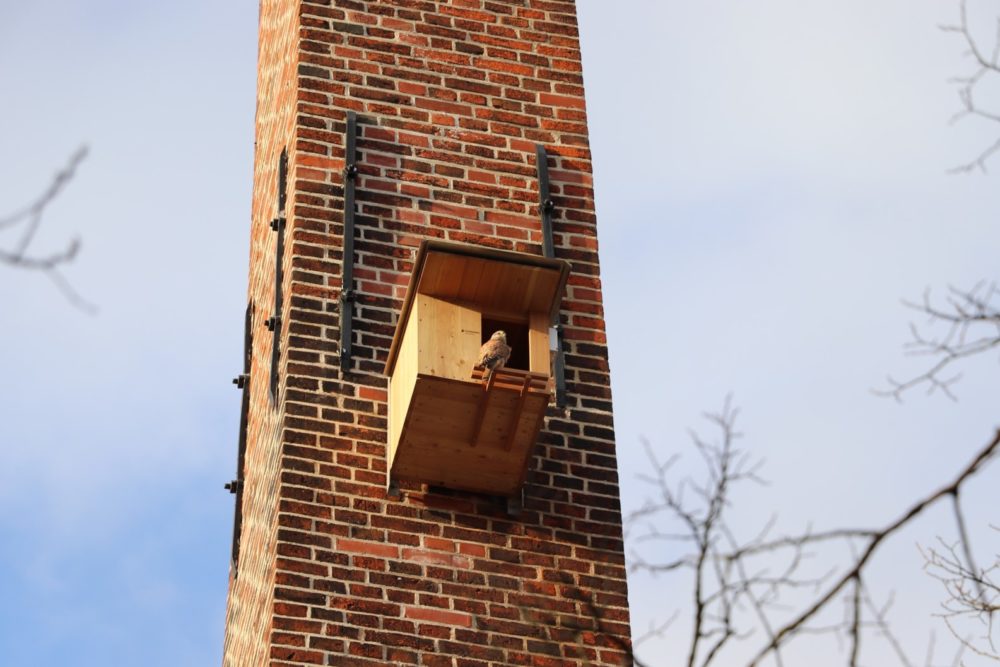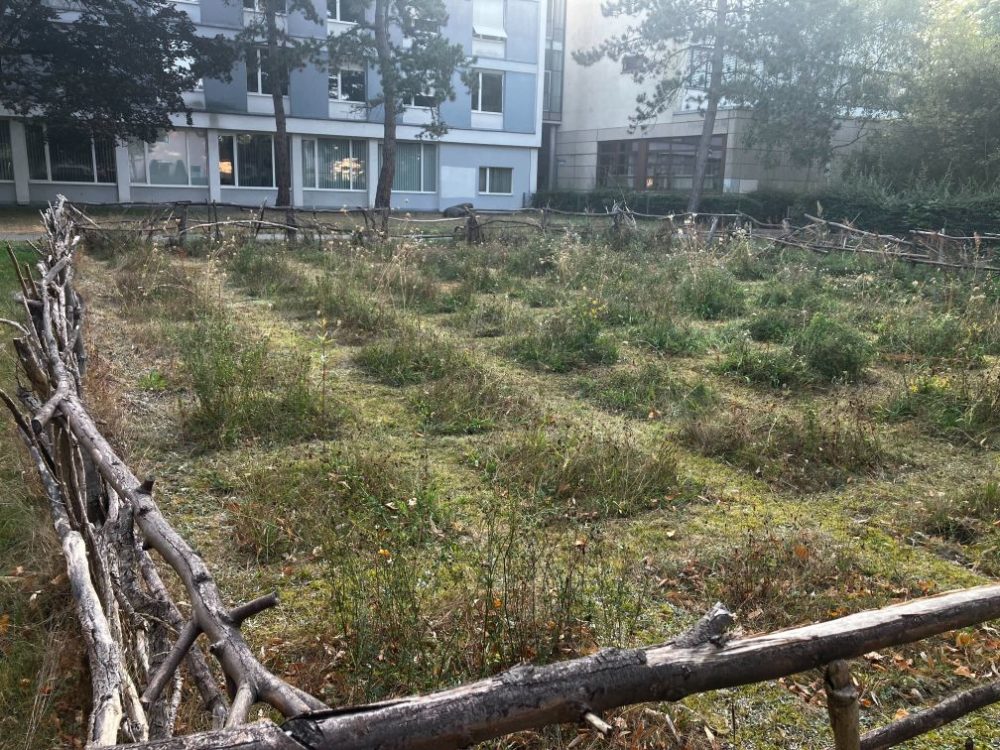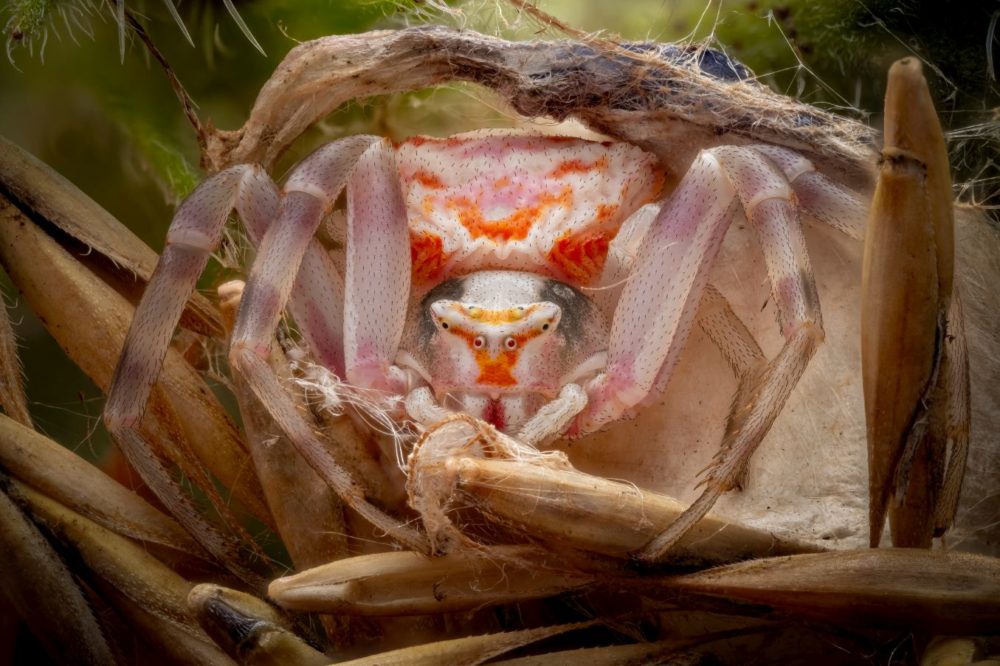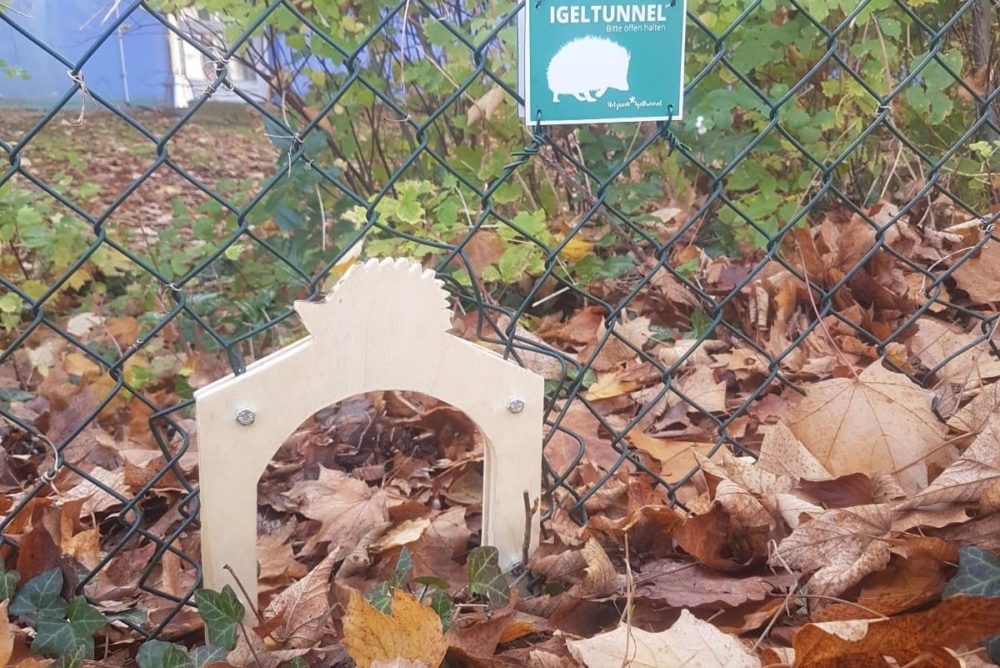2024 Award Winner: Freie Universität Berlin
The Blooming Campus – a university initiative connects people for more biodiversity
The initiative began as a protest action against the regular mowing of the meadows in front of the Institute of Biology and has grown into a project that brings together a wide range of stakeholders inside and outside the university. Actions for more biodiversity, but also research, teaching and public relations, as well as community gardening and ecological monitoring play an important role. As a living lab, the project also includes research on health promotion through biodiverse working and study environments as well as promoting acceptance through art. Within five years, the initiative has not only grown in terms of members and topics, but has also become increasingly institutionalised. With a dedicated position for biodiversity management and a biodiversity strategy, the project is to be permanently established in the university’s structures.

10 hectares of green spaces, which were previously mowed up to 9 times a year, are now mowed at staggered intervals and only once or twice a year. Various nesting aids for wild bees, songbirds and a kestrel nesting box equipped with a camera have been installed. A community garden has been created that combines various actions to promote biodiversity in a small area, such as dead wood, ponds and compost, which provide habitats for multiple organisms. Together with the other sustainability initiatives, the garden is also used as a gathering and learning place.

The initiative’s researchers are investigating the areas according to insect and plant diversity, soil quality, and human wellbeing – an initial study has already been published and others are in progress. The research data is collected in cooperation with volunteers, students on courses and the university administration. The diverse projects also find their way into teaching – for example, the first interdisciplinary course on campus nature was held in the summer semester of 2024. Bachelor and master thesis have been written on the Blooming Campus in fields such as ethnography, educational science and biology. Bringing together the diversity of all organisms, but also people, our skills and areas of knowledge is the innovative strength of the initiative.

The Blooming Campus Initiative cooperates with the district and the city of Berlin as well as with other local institutions. It includes the University in a network of Berlin’s nature conservationists, a Germany wide network of university biodiversity initiatives, and international networks such as ISCN and NPU. Scaling up biodiversity projects is especially important from the perspective of animals – our borders between backyards or institutions can harm them by fragmentation of their habitat. In cities, habitat loss and fragmentation are common factors of global change. Supporting and connecting biodiversity projects is therefore an important part of the initiative’s work. Especially after winning the Berlin price of Nature Conservation, the Blooming Campus initiative gained a lot of attention and is asked for advice regularly. For further spreading of knowledge and ideas, public relations projects for children and adults have been developed.

Learn More: Blooming Campus Initiative